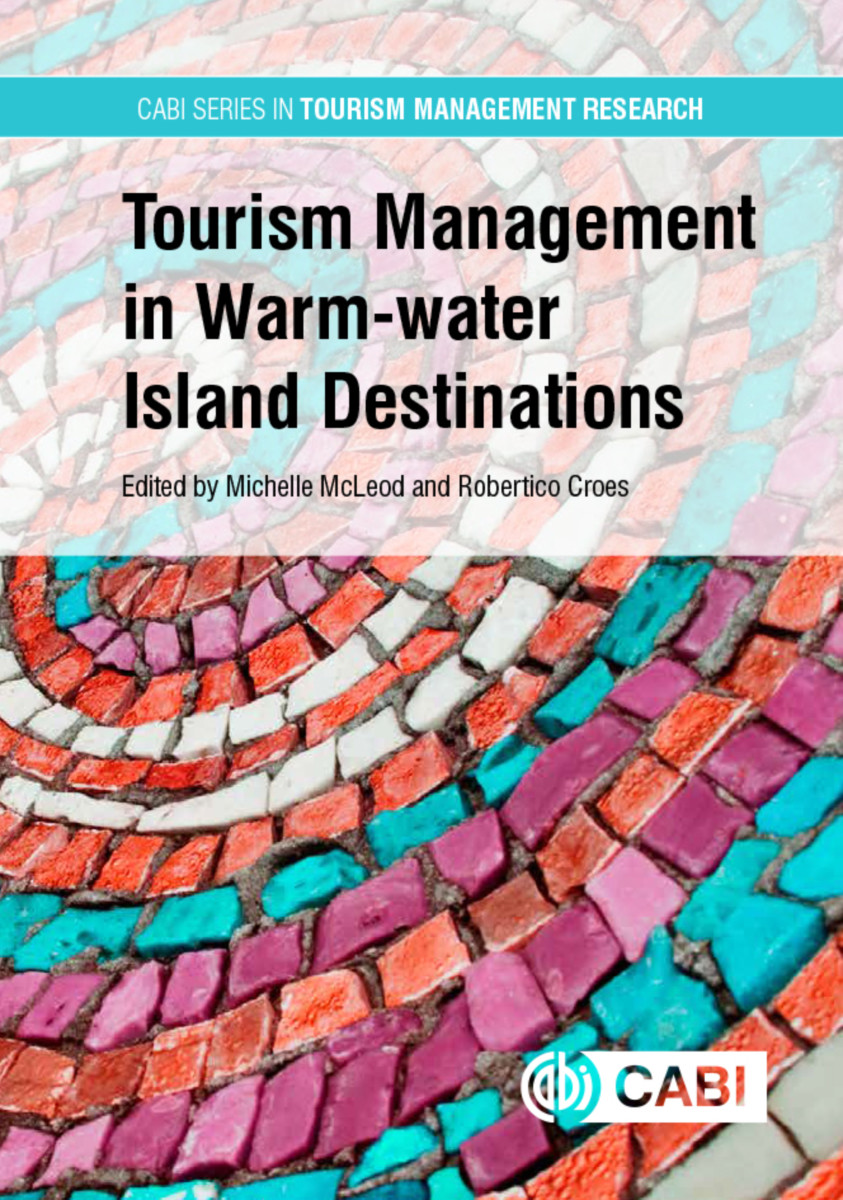Tourism Management in Warm-water Island Destinations
- Publisher
CABI - Published
9th March 2018 - ISBN 9781786390929
- Language English
- Pages 212 pp.
- Size 6.75" x 9.5"
- Images tables
Warm-water islands are a cohesive group of islands distinguished by their geography and remoteness, history as former colonial territories, and dependence on external stakeholders for their economic and social development. Warm-water island destinations also have a year-round tourism industry.
These island tourism destinations are facing unprecedented adjustment challenges in the wake of increasing globalization and susceptibility to external shocks, and are in search of appropriate policy responses to that globalization. It is critical for small islands to understand how these challenges affect tourism performance and how they impact their residents.
Tourism Management in Warm-water Island Destinations unearths the critical aspects that contribute to tourism development and growth in islands. Particular emphasis is placed on destinations such as the Caribbean, with lessons learned that are applicable to other island tourism contexts in the Mediterranean, Indian Ocean and the Pacific.
- Presents emerging research themes and methodology;
- Provides insight into factors that result in successful and unsuccessful cases;
- Features a focus on Cuba and its reintroduction to the tourism landscape.
This book provides a platform for emerging systemic perspectives of the various aspects of island tourism, with the view that strategies for the management and development of tourism in island environments can be improved and will be of interest to those studying and researching within destination management.
1: Overview of tourism in warm-water island destinations
PART I: Island Tourism Transport and Hospitality
2: Island travel transportation
3. An altruistic behavioral change approach to sustainable tourism when funds are scarce: a narrative of a small business model
4: Tourist motivation and demand for islands
5: Island hospitality, services and businesses
PART II: Island Tourism Policy, Planning and Development
6: A comparative analysis of tourism policy networks
7: Planning for growth in islands, the case of Cuba
8: Subjective well-being and tourism development in small island destinations
PART III: Island Tourism Marketing and Management
9: Tourism in the Seychelles – trends and experiences
10: Destination management: a network perspective
11: Music festivals in small island destinations
12: Development a network analysis methodology for island tourism research
Michelle McLeod
Michelle McLeod is Lecturer in Tourism Management at The University of the West Indies. Her tourism industry experience spans over 20 years. Her present research interests are in the subject areas of tourism, knowledge networks, policy networks, and service productivity. She is co-editor of Knowledge Networks and Tourism published by Routledge in 2015.
Robertico Croes
Robertico Croes currently serves as the Associate Dean, Interim Chair of the Tourism, Events & Attractions department as well as the Associate Director of the Dick Pope Sr. Institute for Tourism Studies at the Rosen College of Hospitality Management at the University of Central Florida. Professor Croes has published three books entitled The Small Island Paradox: Tourism Specialization as a Potential Solution, Anatomy of Demand in International Tourism, and his most recent book Poverty Alleviation through Tourism Development. Additionally, he is a contributor to several books. His fields of interest include: econometrics applications in hospitality, tourism demand analysis/forecasting, tourism economic impact, competitive and sustainable tourism in tourism development analysis, tourism development applied to poverty alleviation, and tourism development in small islands and developing countries. Professor Croes is the recipient of the 2015 Thea Sinclair Award.


